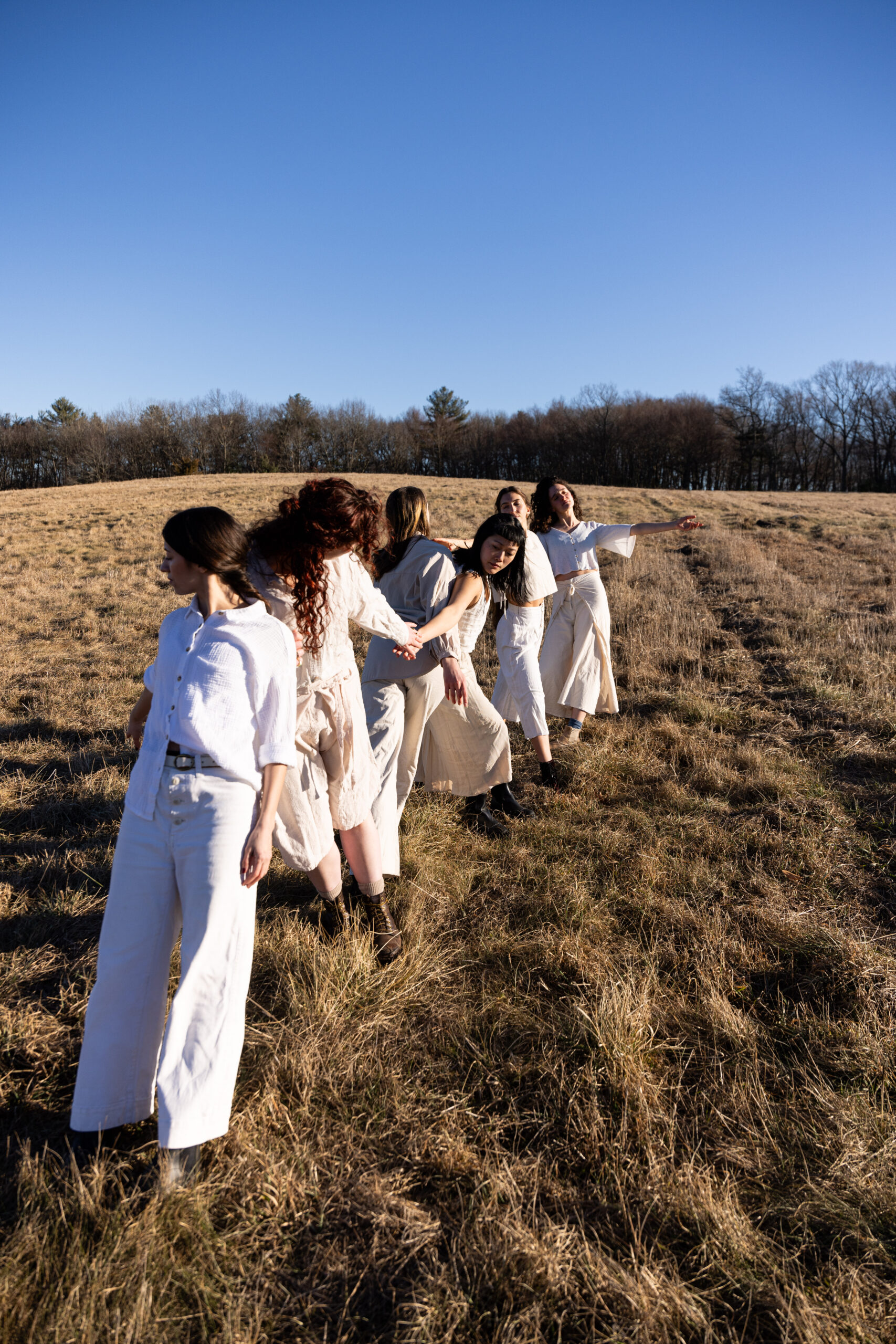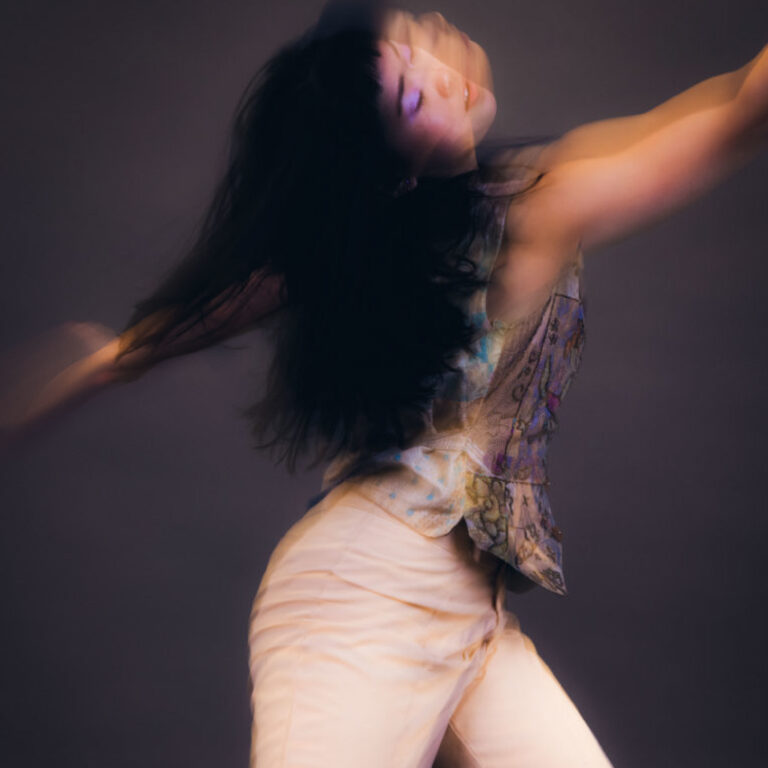 Photos: Olivia Moon Photography
Photos: Olivia Moon Photography
 Photos: Olivia Moon Photography
Photos: Olivia Moon Photography
Cassie Wang is a multidisciplinary artist exploring various mediums within the framework of contemporary dance performance. Originally from Kansas City, she earned her B.A. from Pomona College in Computer Science with minors in Dance and Media Studies. In her choreographic work, she explores feelings of serendipitous existential intimacy and strives to make the deeply personal feel universal. Her artistic endeavors embody a relentless pursuit for an understanding of Self in relation to surrounding circumstances.
Cassie is a 2024–2025 Next Steps for Boston Dance grantee, a 2023–2024 Dance Lab Resident at the Boston Center for the Arts, and an inaugural MIDDAY Movement Series Rough Drafts Artist. She has received additional support for her work from the NEFA Dance Fund and the Massachusetts Cultural Council. Cassie was previously a part of MIDDAY’s BIPOC Professional Dancer Mentorship Program (2023) and Dunamis’s Emerging Artist Fellowship (2022). Her work has also been presented by Resilience Dance Company, NACHMO Boston, and the Asian American Ballet Project.
As a performer, Cassie is a principal dancer with KAIROS Dance Theater and a movement researcher at the Partnering Lab. Her other recent performance and collaboration credits include the Boston Lyric Opera, Jessi Stegall, Nightingale Vocal Ensemble, Chavi Bansal, Dafi Altabeb, and Ilya Vidrin. As an educator, Cassie was previously a teaching assistant for Gaga at Harvard University and has taught professional-level open classes through KAIROS, MIDDAY, and The Click.
The Head is not the Star of the Body is a choreographic study on longing. Directed and choreographed by Cassie Wang, the evening-length dance production responds to songs by American indie folk band Big Thief. As a meditation on desire, Wang fuses generative video art and projection into a performance of contemporary dance that is intimate and tender through moments of affective viscerality. Throughout this multi-year process, Wang and her collaborators ground themselves in the questions: How does longing reveal identity? How do we sit with someone else’s longing? How do we measure the distance between subjects of longing? In process and in performance, this new work aims to cultivate mutual understanding of self and other.
Thursday, May 8 | 7:00 PM
Friday, May 9 | 7:30 PM
Saturday, May 10 | 7:30 PM
Sunday, May 11 | 2:00 PM
May 12–June 30 | online access
Director & Choreographer | Cassie Wang
Performers and Collaborators | Gabriela Amy-Moreno, Hannah Franz, Sasha Peterson, Noli Rosen, Cassie Wang, Maude Warshaw
Additional Movement Collaborators | Leah Misano, Juliet Paramor
Video Editors | Kiki Temple and Cassie Wang
Dramaturg | Ilya Vidrin
Rehearsal Director | Dara Nicole Capley
Music | “Mary,” “Shark Smile,” “Objects,” “Pretty Things,” “Capacity,” “Lorraine,” “Humans,” “Change,” “Mythological Beauty,” “Parallels,” “Little Arrow,” “Wolf,” “Breathe in Your Lungs,” “Real Love,” “Heavy Bend,” “Velvet Ring,” “Simulation Swarm,” “Time Escaping,” “Shoulders,” “Dried Roses” by Big Thief
Technical Director | Anne Dresbach
Lighting Designer | Andrea Sofia Sala
Director of Dance & Interdisciplinary Arts, Boston Center for the Arts | Andrea Blesso
For her Dance Lab at the BCA, Cassie Wang will begin a study on longing and fabricated nostalgia, building toward an evening-length, interdisciplinary performance integrating contemporary dance, storytelling, and generative video art. Responding to a selection of songs by Big Thief, the music and lyricism of the American indie folk band will guide an ethnographic inquiry and movement research with her collaborators. In this project, she aims to not only incorporate Big Thief’s music as the score but also treat their lyrics as a discrete source of text for generating movement. Interested in how both the meaning of a text and its cadence can inspire movement, her choreography will interweave interpretations of the music’s sonic qualities; the meaning and sound of the lyrics; and the ideas and stories collected through research with the dancers. Utilizing her technical background in computer science and media production, she plans to visually depict the ethnographic findings using a BigGAN text-to-image generator, juxtaposing the raw, unembellished storytelling of fictionalized early memories with the highly curated and artificial medium of generative art. Ultimately, this study on longing aims to cultivate mutual understanding—longing emerges from a perceived gap in our identities, and to know what someone longs for is to witness the core of their being.